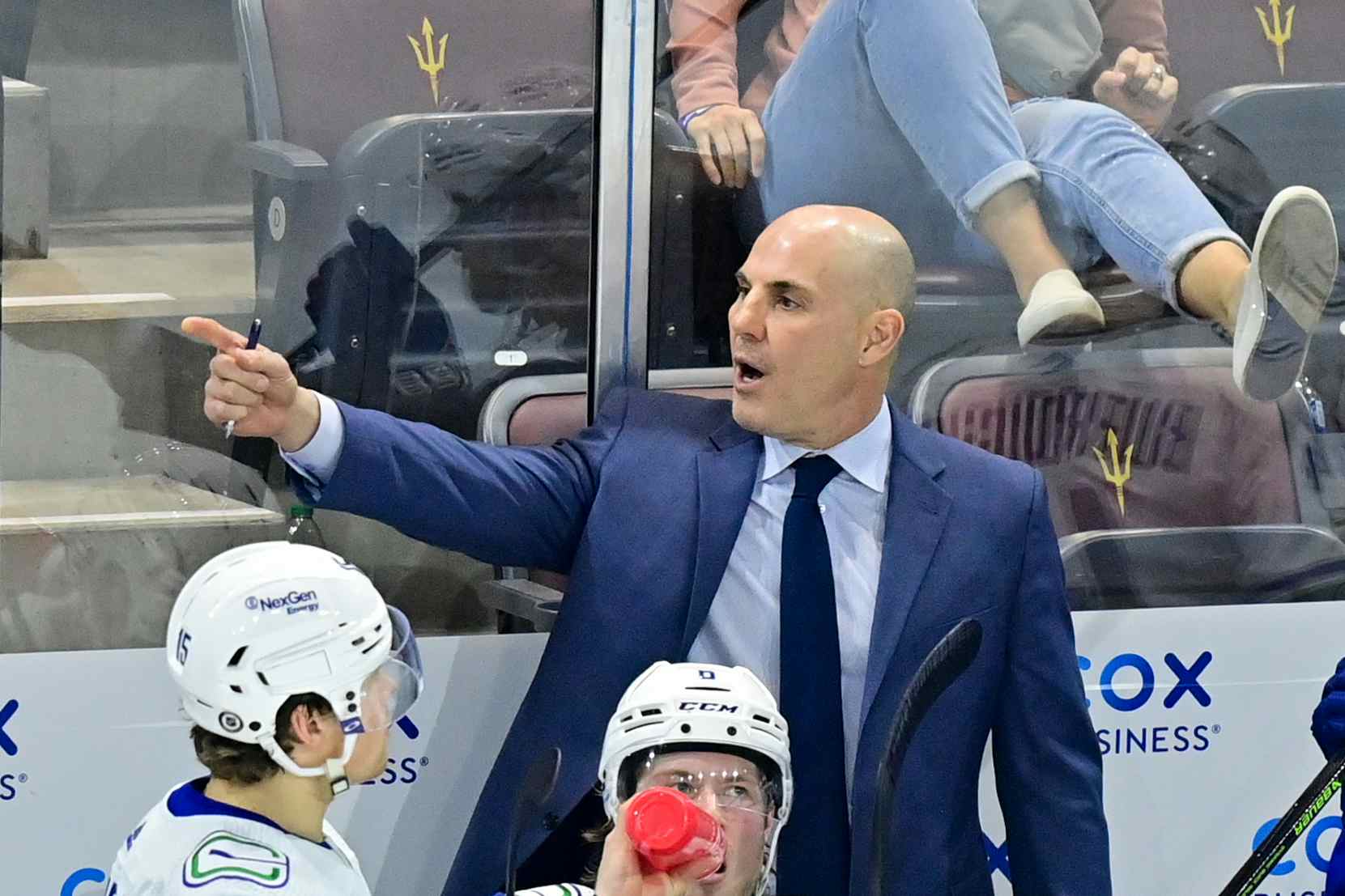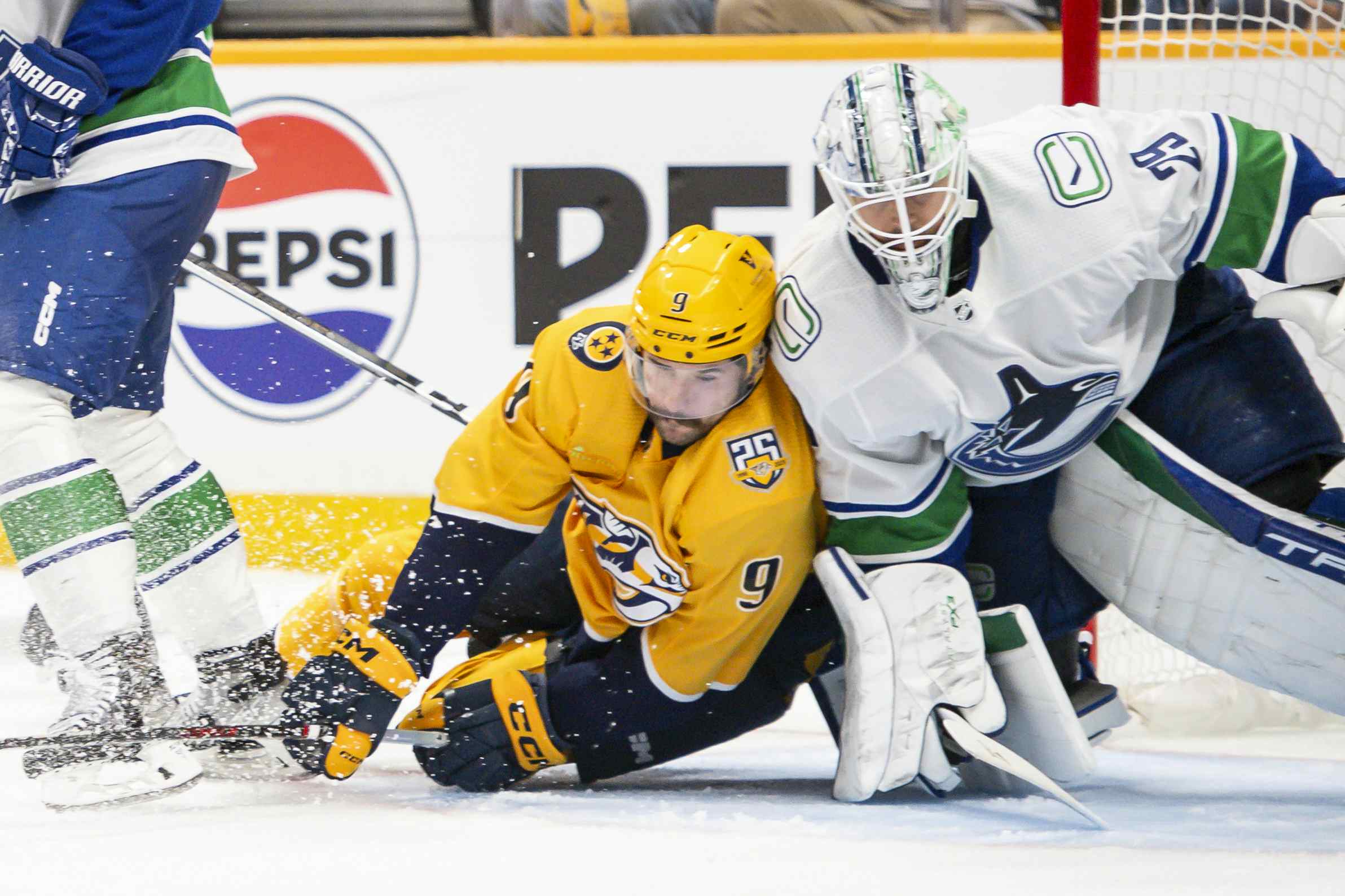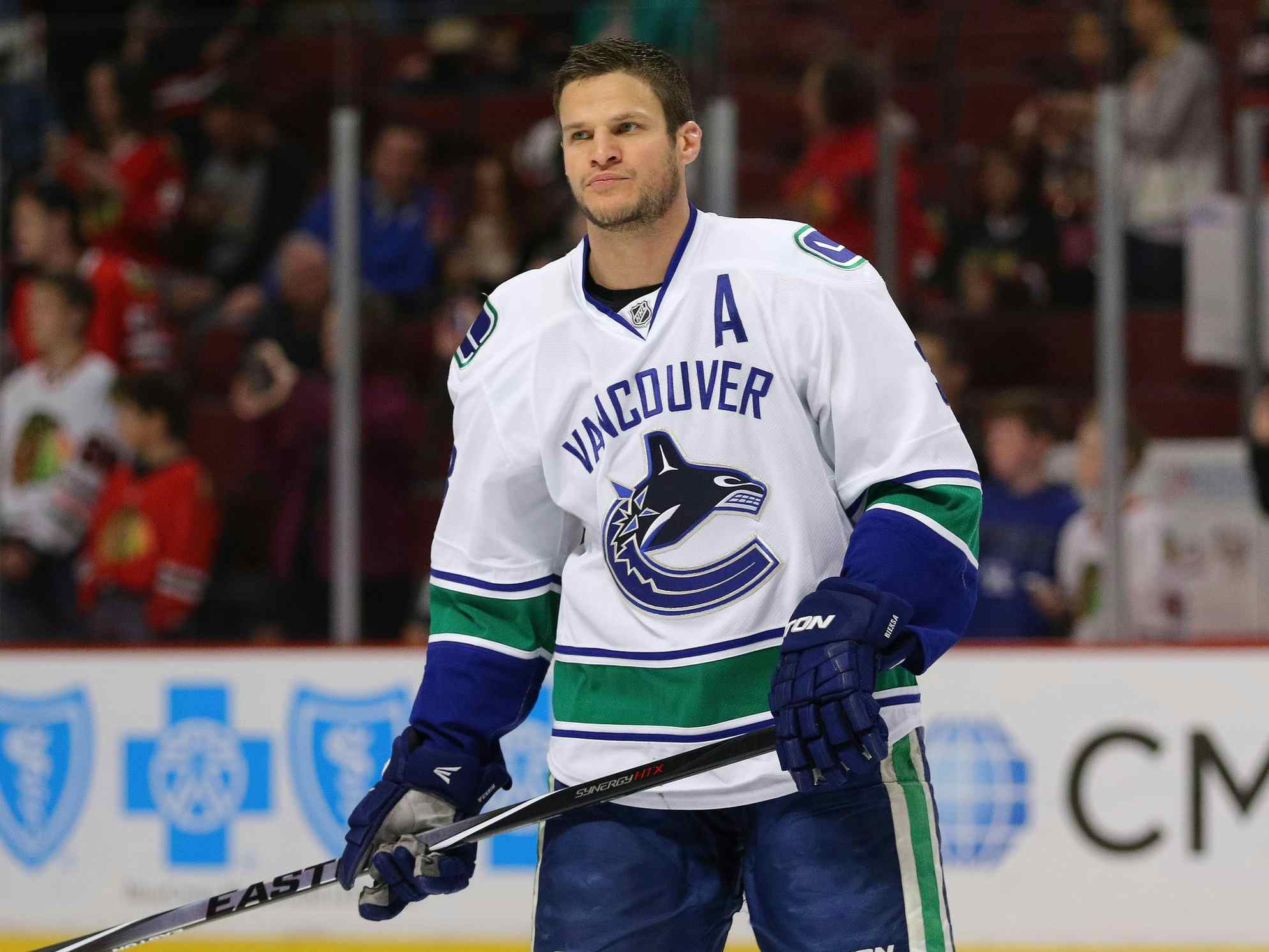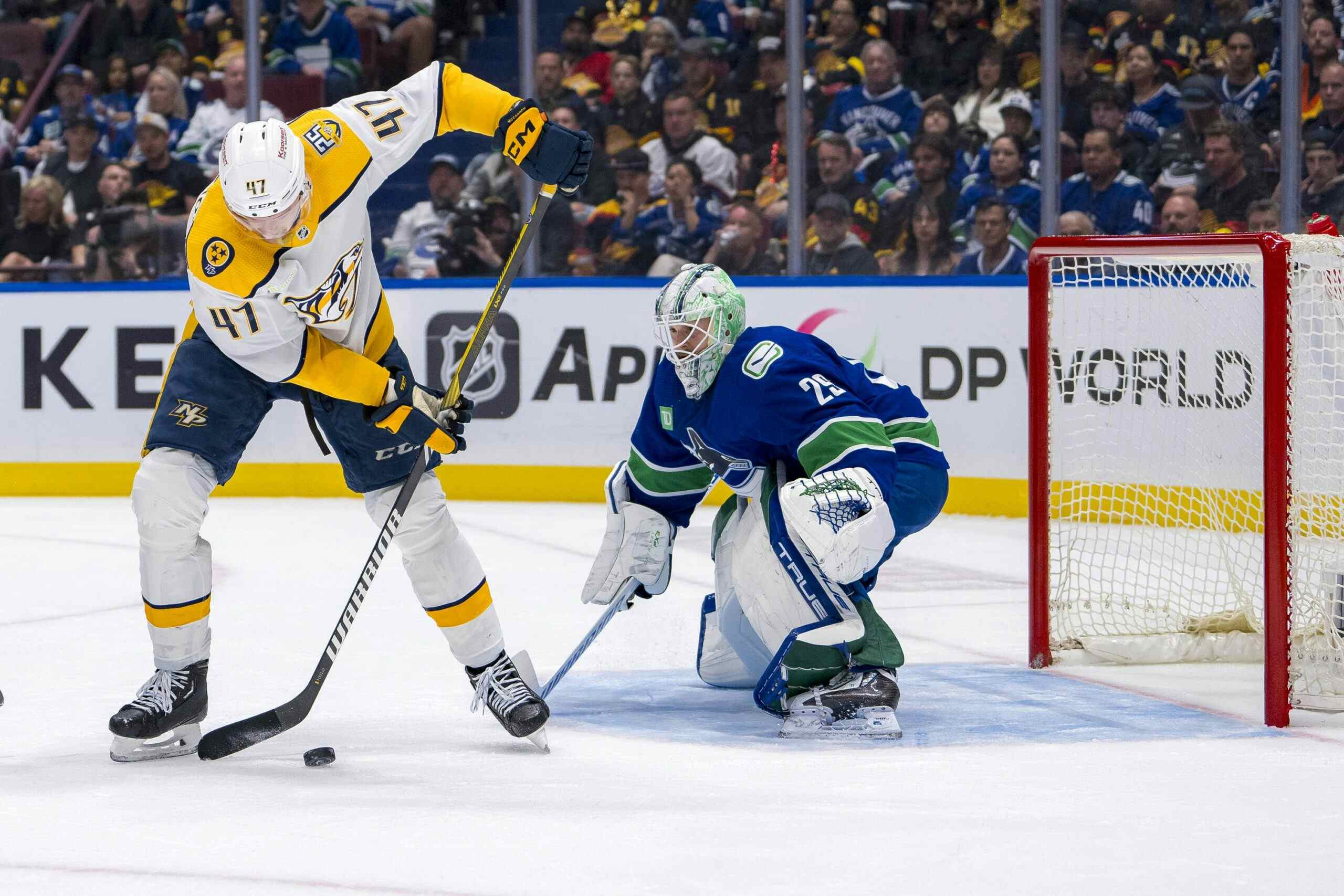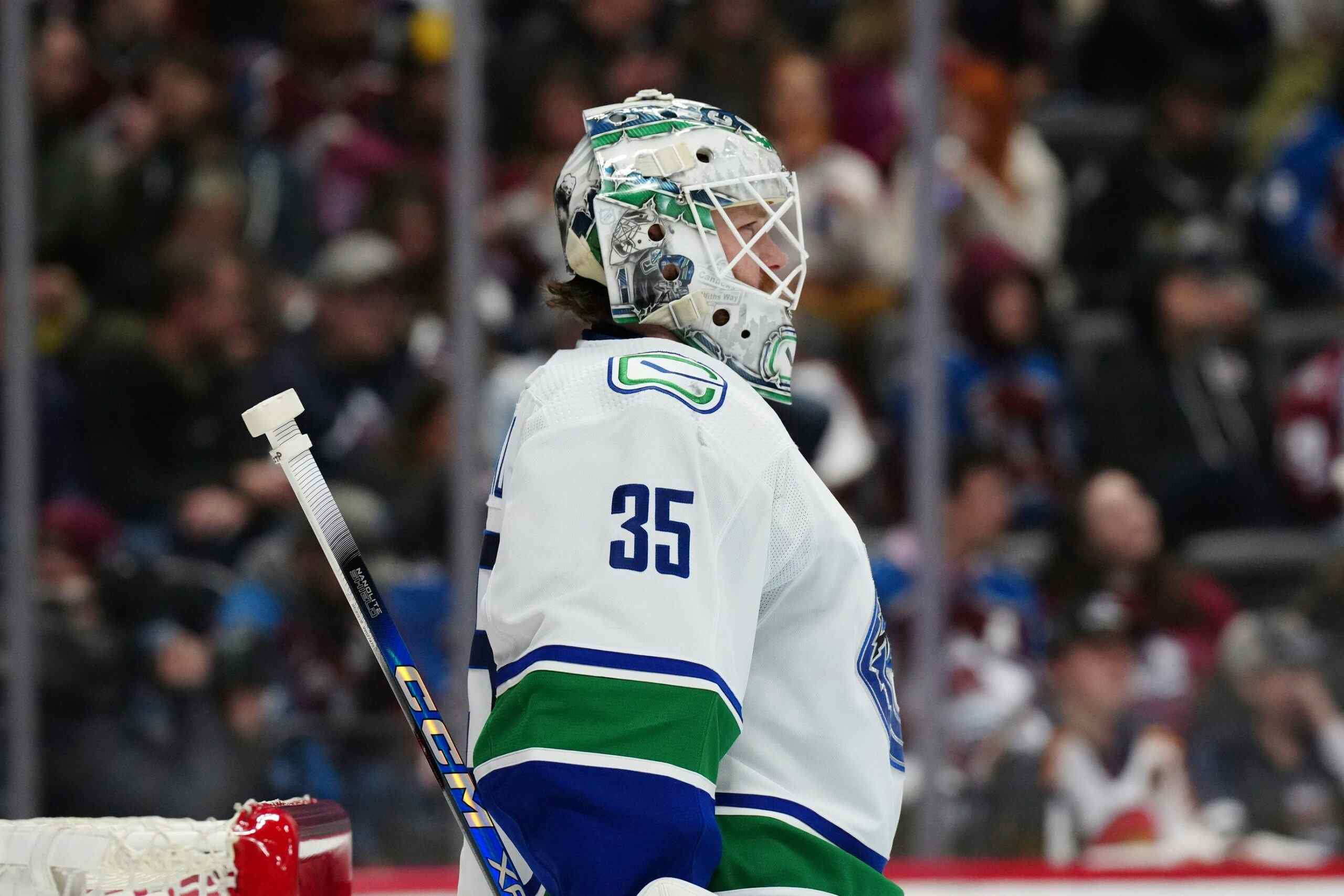How Much Will It Cost The Canucks To Re-Sign Chris Tanev?
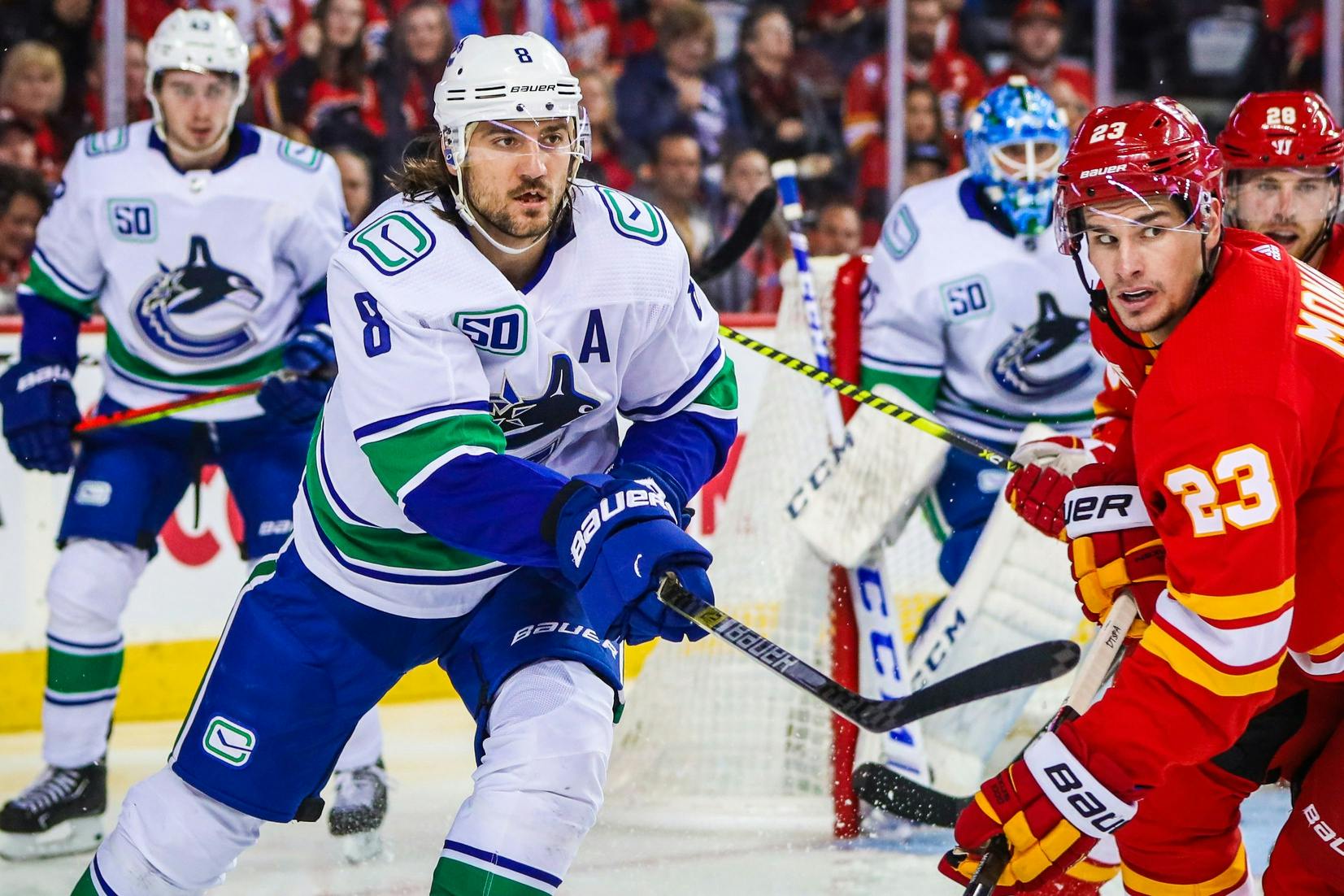
The 2020 NHL Trade Deadline is just a month away and, for once, the annual lists of “Top Players on the Block” do not contain Vancouver Canucks defenseman Chris Tanev – despite the fact he’s a pending unrestricted free agent in the midst of what could be considered a career season.
Tanev’s resurgence on the Vancouver blueline, combined with the Canucks’ unexpected perch atop the Pacific Division standings, makes him far too valuable to the current makeup of the team to consider trading partway through the season – but that’s only going to delay an inevitable and difficult Tanev-related decision for Jim Benning and Co.
All signs point to the Canucks doing their best to re-sign Tanev to a fair contract and to avoid having him walk in the offseason, but that only raises the question of what exactly a fair contract for Tanev might look like.
And that’s the question we’re here to answer today.
Should The Canucks Re-Sign Chris Tanev?
Before we get too deep into the discussion, it’s important to speak to another important question that will need to be answered – should the Canucks even bother with re-signing Chris Tanev?
It’s a question this author posed in a recent CanucksArmy WWYDW, and responses were pretty consistent.
Though there is value in the notion of keeping Tanev as a “self-rental” for the 2020 stretch-run and (possible) playoffs – and then letting him walk to the free agent market – the general consensus seems to be that Tanev still has a lot to offer the organization beyond the 2019/20 season. At the age of 30, he’s playing perhaps the best – and certainly the healthiest – hockey of his career, and it would be strange to see his time in Vancouver cut short after such a high note.
Fans want him back and, given how big a role he’s played in Quinn Hughes’ dominant transition to professional hockey, it’s tough to imagine that management feels any differently about it.
Setting The Parameters
We’ll soon delve into some contract comparables for Chris Tanev, but first we need to set the parameters of our hypothetical contract negotiations.
In terms of salary, there shouldn’t be anyone expecting Tanev – signing his first ever UFA contract and coming off an excellent season – to take a pay cut. That conveniently sets the bottom-end of discussion at Tanev’s current cap hit of $4.45 million per season.
Term is a lot trickier to nail down. Tanev will be three years younger when he signs his next contract than Alex Edler was when he signed for two additional years – and one has to expect Tanev to demand a little more job security than that. His last contract was for five years, and that’s probably what he’s going to aim for in his new deal – though the Canucks might be able to wrestle him down to four years. Anything less is unlikely.
The upper parameters for this negotiation are a lot easier to figure out. There’s just no way that Tanev could demand a salary in line with what the Canucks just gave Edler and Tyler Myers in the 2019 offseason – he doesn’t have the offensive cachet. That means he should be making considerably less than $6 million per season. To be generous, we’ll leave the upper-end at a cool $5.5 million a year.
The maximum term that Tanev can expect to receive also has a readily apparent ceiling. To wit, only seven defensemen aged 29 or older have signed for six or more years in the last five seasons – and they are Roman Josi, Jared Spurgeon, Erik Karlsson, Ryan McDonagh, Marc-Edouard Vlasic, Brent Burns, and Keith Yandle. As much as Vancouver fans love Tanev, he’s not even in the same ballpark as those players were when they signed their respective contracts, so he’ll have to settle for fewer years.
Even a contract of five years would be unusual for a defenseman of Tanev’s skill and age – but not enough of an anomaly to fully discount. Five years makes for a fine upper-limit on our imaginary negotiations.
Therefore, we can safely assume that Chris Tanev will be asking for a contract somewhere in the range of $4.45-5.5 million, and with a term of 4-5 years.
Anything less than that would represent Tanev taking an excessive discount from his value on the open market.
But let’s see if we can’t narrow those numbers down even further with some comparable contracts.
Contract Comparables
CapFriendly has a handy-dandy Contract Comparables tool on their website, but it’s not particularly useful for comparing contracts that have yet to be signed. For that, we’ll have to get down to some serious customization.
By filtering all previous defenseman signings by the parameters we set earlier in the article, we can begin to get a sense of the sort of contracts that Chris Tanev and his agent will be pointing to as they negotiate with Jim Benning and Co.
Still using CapFriendly, we narrowed down all blueline contracts signed in the past five seasons for a term between three and six years. To compensate for the fact that the cap has gone up during the course of those five seasons, we expanded the salary parameters to include all contracts with a cap hit between $3.5 and 6 million per season.
That results in a list of just 28 players, several of whom can be discounted because their deals were signed when they were much younger than Tanev’s current age of 30. After getting rid of them, we’re left with the following table of comparables:
(All stats are for the season prior to/during which player signed contract)
| Year | Player | Team | Age | Cap Hit | % of Cap | Term | Points-per-game | Average TOI | Corsi For % |
| 2016 | Braydon Coburn | Tampa Bay | 30 | $3.7 mil | 5.07% | 3 Years | 0.13 | 16:45 | 50.7% |
| 2016 | Alex Goligoski | Arizona | 30 | $5.475 mil | 7.50% | 5 Years | 0.45 | 23:50 | 53.1% |
| 2016 | Jason Demers | Florida | 28 | $4.5 mil | 6.16% | 5 Years | 0.37 | 20:52 | 54.1% |
| 2017 | Kris Russell | Edmonton | 30 | $4 mil | 5.33% | 4 Years | 0.19 | 21:13 | 46.5% |
| 2017 | Brendan Smith | New York Rangers | 28 | $4.35 mil | 5.80% | 4 Years | 0.18 | 19:15 | 49.7% |
| 2017 | Karl Alzner | Montreal | 28 | $4.625 mil | 6.17% | 5 Years | 0.16 | 19:47 | 46.3% |
| 2018 | Ian Cole | Colorado | 29 | $4.25 mil | 5.35% | 3 Years | 0.30 | 17:47 | 51.1% |
| 2018 | Calvin De Haan | Carolina | 27 | $4.55 mil | 5.72% | 4 Years | 0.36 | 18:45 | 49.1% |
| 2019 | Anton Stralman | Florida | 32 | $5.5 mil | 6.75% | 3 Years | 0.36 | 20:31 | 47.4% |
| 2019 | Tyler Myers | Vancouver | 29 | $6 mil | 7.36% | 5 Years | 0.39 | 20:21 | 48.8% |
| 2019 | Ben Chiarot | Montreal | 28 | $3.5 mil | 4.29% | 3 Years | 0.26 | 18:37 | 47.3% |
| 2019 | Jake Gardiner | Carolina | 29 | $4.05 mil | 4.97% | 4 Years | 0.48 | 21:13 | 52.2% |
| 2020 | Chris Tanev | ??? | 30 | ??? | ??? | ??? | 0.28 | 19:48 | 45.0% |
Some key numbers to consider on this chart are Points-Per-Game and Percentage of Cap for each contract.
Though the modern hockey world understands that point totals aren’t the only measure of a defenseman’s effectiveness, they’re still the bedrock of contract negotiations. Chris Tanev simply doesn’t have the scoring prowess to warrant any comparisons with the Goligoskis, Stralmans, Myers’, and Gardiners of the chart – even in a career year.
The percentage of the total salary cap taken up by each contract when they were signed is a better measure of their true value than raw salary, since the cap itself typically goes up each year. With that in mind, it seems safe to say that Tanev will end up signing a contract that is worth somewhere between 5% and 6% of the salary cap – which has yet to be set for the 2020/21 season as of this writing.
The term is where things get interesting. There’s at least one comparable on the chart, Karl Alzner, that Tanev and his agent could point to as justification for a five-year deal – but that’s pretty shaky ground to negotiate from given how regrettable the Alzner contract has proven. Similarly, there are also a few comparables that the Canucks might use to justify a three-year deal, but by far the most likely outcome appears to be a four-year pact.
Final Prediction
To make our final prediction, we have to estimate the NHL salary cap for the 2020/21 season. To play it safe, we’ll copy the modest $2 million increase that occurred this past offseason – leaving us with a new ceiling of $81.5 million.
We’ve already predicted that Tanev would sign a four-year deal worth beween 5% and 6% of the total cap, so let’s cut it straight down the middle with a 5.5% cap hit.
That leaves us with a grand total of:
$4.5925 million per season for four years.
Can The Canucks Afford That?
On the surface, this seems like a bit of a silly question. After all, that amount would represent only a small increase on Chris Tanev’s current cap hit – and the Canucks have no issue fitting him into their cap structure at the moment.
However, Vancouver’s salary situation will soon change drastically. They’ll be alright in 2020/21 – with just enough salary coming off the books to squeeze in raises for Jake Virtanen, Adam Gaudette, and Jacob Markstrom – but then they’ll have to figure out how to accommodate the presumably massive deals Elias Pettersson and Quinn Hughes will sign in the 2021 offseason. Alex Edler, Brandon Sutter, and Tanner Pearson will all see their contracts expire that summer, but it may not be enough to make room for double-digit additions to the salary cap.
With all that being said, the Canucks are planning on competing for the Stanley Cup Playoffs throughout those seasons, and they’ll need top-four defensemen to do it. It’s far from a guarantee that they’ll be able to find a cheaper replacement than Tanev in the meantime – so they’ll have to fit in a contract of about the same size as his one way or another.
It’s also far from a guarantee that Tanev maintains his current level of play for another four seasons, and that’s really what it all comes down to. If the Canucks believe that Tanev can continue playing effectively until at least 2024, they have no reason not to sign him this offseason. If they’re concerned about his play dropping off, however, then it might be time to cut ties and start looking for a long-term upgrade.
Recent articles from Stephan Roget

